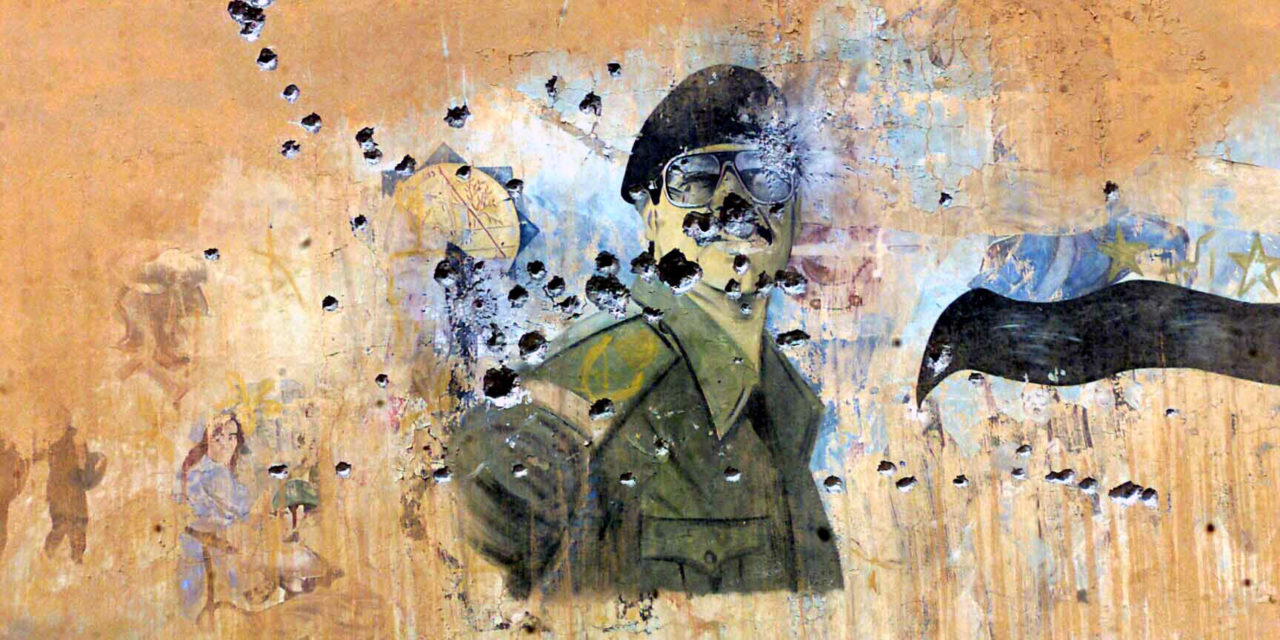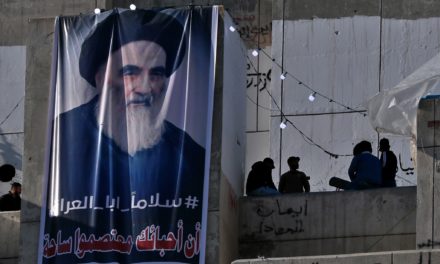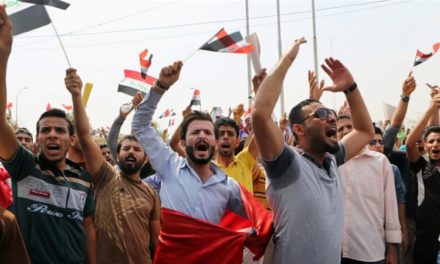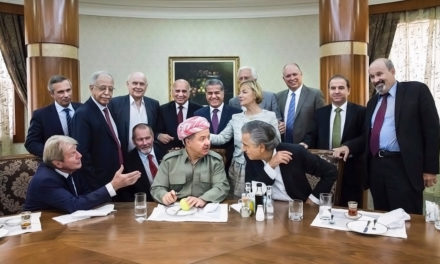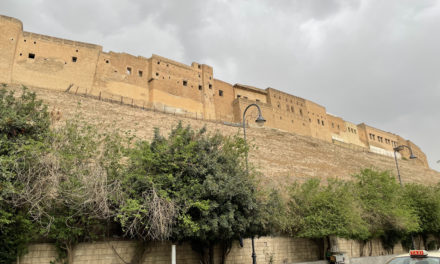“Let go of the past, it is time to focus on the future”, I hear this reply a lot each time I describe my miserable life as an Iraqi citizen under Saddam’s rule.
Technically they are right; clinging to the past is not healthy. What they are missing though is that without processing the past properly our future will be born defective. 15 years after the Ba’ath regime was overthrown by the U.S.-led invasion, nostalgia for Saddam’s days is still alive and well in Iraq. Iraqi writer Marsin Alshamary took an in-depth look at the causes and consequences of this phenomenon.
As someone whose life was ruined as a direct result of growing up in a country ruled by a genocidal dictator, I found Marsin’s piece quite disheartening and yet not surprising. All that I can remember before 2003 is constant fear, hunger and despair. My childhood and adolescent years were a living hell. My family was falling apart before my eyes, primarily because we had no money. Each day I went to bed without dinner I prayed to God to make the next day a little less miserable, even though deep down I knew the next day was going to be the same if not worse.
At one point I watched my father sell our furniture at the cheapest price to buy some food that week. One vivid childhood memory was seeing my distraught father being given a hard time by his creditors because he was never able to pay them back on time. He passed away before the invasion. To this day I am still heartbroken that he missed seeing Saddam’s demise.
My story is not the most devastating you will ever read about life in Iraq when Saddam was its ”ultimate leader”. There are numerous tragedies of Saddam’s victims. Saddam’s heinous crimes against his own people and also Iraq’s neighbors are very well documented and no sane person can deny them.
Despite this, I keep hearing people yearning for “stability” that according to them was present back when Saddam ruled Iraq. “Things were a lot simpler back then, we were able to go out late at night and nothing wrong would’ve happened to us. The country was stable. The people were under control”, are some of the arguments these individuals make on regular basis. Even some protesters in southern Iraq very recently demanded the return of the presidential system because, according to them, parliamentary democracy is not working out properly. I saw one Basrawi protester shouting enthusiastically on TV a couple of weeks ago “We want a strong ruler” and I remember thinking “Right, because a strong ruler’s regime worked out great for the South before!”
The collective memory of most societies tend to be short unfortunately, and when the present is far from ideal the temptation to beautify an ugly past and use it as a form of escapism becomes even stronger. I personally find the notion that a strong ruler is needed to control Iraqis ridiculous and deeply offensive. Our democracy is flawed, but I still believe in it, and think that it is one million times better than being forced to live under a dictatorship.
We have to continue reminding others of the sheer monstrosity of Saddam’s regime. We owe it to his victims, their families, and the new generations that did not know life under his rule. There is a reason why people say “Never Again” each time a major man-made catastrophe, like the holocaust happens, because history has a frightening tendency to repeat itself.
We said “Never Again” after Saddam’s regime massacred many Iraqis of various ethnic and religious backgrounds on repeated occasions, and yet Yazidi Genocide and the Speicher Massacre happened in 2014 as both were perpetrated mainly by Iraqis who failed to come to terms with the social and political changes that took place in Iraq post-2003. They didn’t appreciate being forced to share power and privilege with others, so they lashed out at their fellow citizens.
Our democracy is still fragile and needs protecting. Until now we are thankfully standing on our feet, but the threat is there and we must not ignore it. The ”Iraq needs a strongman’s rule” and “Iraqis are unfit for democracy” mentality must be ferociously fought with counter-ideas. Praising Saddam must be approached in the same way as praising the Nazis ideally would be: with zero tolerance. Sleeping on red flags is bound to lead to disasters.
We also need to have a heart-to-heart conversation on a social level about what this country has been through both before and after 2003. It was the U.S.-led invasion that overthrew Saddam in three weeks, not Iraqis. Change was sudden and overwhelming, and a not-so-small chunk of Iraq’s society still has not made its peace with it entirely. Achieving societal reconciliation would be impossible without addressing lingering grievances on both sides. Only then can we reach an understanding about the Iraq we want for ourselves and for future generations to live in.
Iraq has a lot on its plate in 2018. The people are rightfully upset with their government for failing to provide basic services and jobs, in addition to the endemic corruption. Demonstrators in central and southern Iraq have been protesting for over a month now, mainly peacefully. The vast majority does not want chaos to prevail, but simply want a better life. Peaceful protests are a healthy manifestation of a functioning democracy where freedom of expression is cherished, and therefore must be applauded and protected by both the state and society.
However, it is entirely possible to spot a loud minority on social media who jumped on the bandwagon and are exploiting the peaceful protests to push for ”regime change”. Such voices could not care less about the welfare of Iraqis. They do not want to improve the current system but abolish it altogether.
Our democracy still needs plenty of work. The solution to Iraq’s current problems is certainly not via delusional beautification of a horrific past. Pre-2003 Iraqis did not have choices, the regime chose for them. Today we at least have a choice to make, even if it is an imperfect one. Peaceful protesting, voting (or not voting), are options. Having them can be frightening as opposed to the perceived simplicity and stability of having things pre-decided for you by an infallible patriarch who turned out to be clueless.
Democracy is messy, and Iraqi democracy is even messier. But we must work hard to preserve and improve it, otherwise my late father and all other victims of Saddam would have died for nothing.

Noor Ali
Noor Ali is a resident of Baghdad and is a Middle East observer, mainly focusing on Iraqi social justice & women’s rights.

